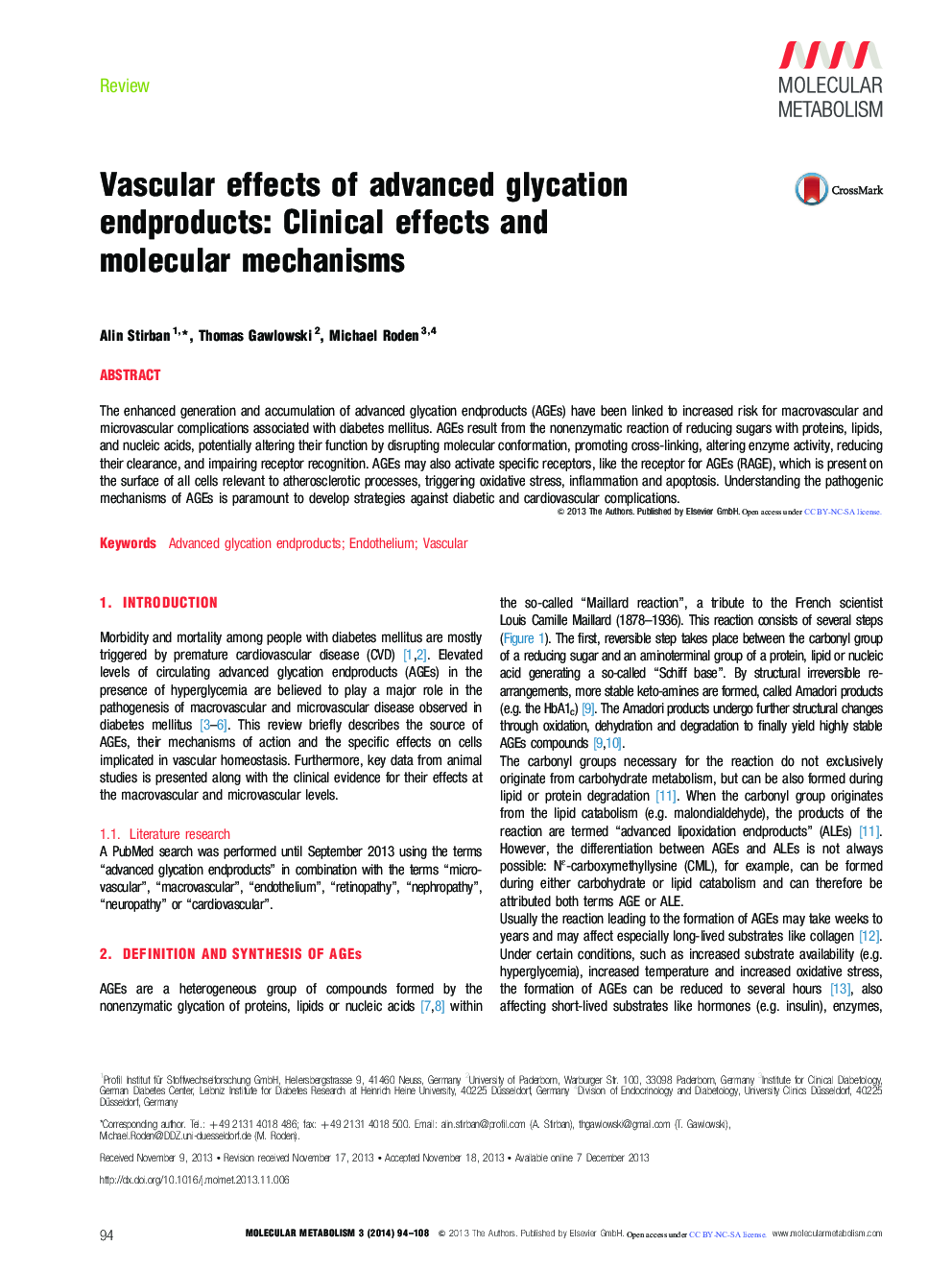| Article ID | Journal | Published Year | Pages | File Type |
|---|---|---|---|---|
| 3001445 | Molecular Metabolism | 2014 | 15 Pages |
The enhanced generation and accumulation of advanced glycation endproducts (AGEs) have been linked to increased risk for macrovascular and microvascular complications associated with diabetes mellitus. AGEs result from the nonenzymatic reaction of reducing sugars with proteins, lipids, and nucleic acids, potentially altering their function by disrupting molecular conformation, promoting cross-linking, altering enzyme activity, reducing their clearance, and impairing receptor recognition. AGEs may also activate specific receptors, like the receptor for AGEs (RAGE), which is present on the surface of all cells relevant to atherosclerotic processes, triggering oxidative stress, inflammation and apoptosis. Understanding the pathogenic mechanisms of AGEs is paramount to develop strategies against diabetic and cardiovascular complications.
